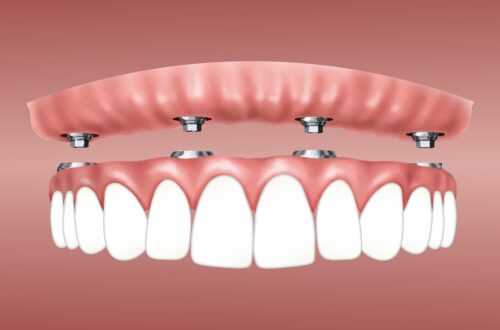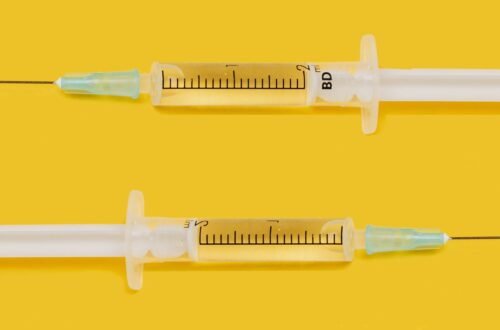Overcoming Coordination Disorders: How Physiotherapy Can Help
Coordination disorders, also known as motor coordination impairments, are a group of conditions that affect an individual’s ability to perform simple movements and tasks. These disorders can have a significant impact on a person’s quality of life, making it difficult to carry out everyday activities. However, there is hope for those struggling with coordination disorders. Physiotherapy Poznan has been proven to be an effective treatment for improving coordination, balance, and mobility. In this article, we will explore the benefits of physiotherapy for coordination disorders, including the different techniques and exercises used to help patients achieve their goals.
If you want to take care of your health and eliminate any pain, contact a qualified physiotherapist who performs treatments as part of the services of Poznan physiotherapy, Poznan massage and Poznan rehabilitation. Find out more by visiting this specialist’s website.
What are coordination disorders?
Coordination disorders refer to a group of conditions that affect an individual’s ability to control their movements. These disorders can affect any part of the body, including the arms, legs, hands, and feet. Some of the most common coordination disorders include dyspraxia, ataxia, and developmental coordination disorder.
Dyspraxia is a condition that affects an individual’s ability to plan and coordinate movements. People with dyspraxia may struggle with activities that require fine motor skills, such as tying shoelaces or using scissors. They may also find it difficult to navigate through crowded spaces or carry out complex movements.
Ataxia is a condition that affects an individual’s balance and coordination. People with ataxia may experience difficulty walking, standing, or sitting upright. They may also struggle with fine motor skills, such as writing or using utensils.
Developmental coordination disorder is a condition that affects children and can continue into adulthood. People with developmental coordination disorder may struggle with activities that require coordination, such as playing sports or riding a bike.
Causes of coordination disorders
The causes of coordination disorders can vary depending on the type of disorder. Dyspraxia is often caused by an underdeveloped nervous system, while ataxia can be caused by a range of factors, including genetic mutations, head injuries, and alcohol abuse. Developmental coordination disorder is often caused by a combination of genetic and environmental factors.
Types of coordination disorders
As mentioned earlier, there are several types of coordination disorders. Dyspraxia, ataxia, and developmental coordination disorder are some of the most common types of coordination disorders. Other less common types of coordination disorders include apraxia, which affects an individual’s ability to perform learned movements, and chorea, which causes involuntary movements.
Symptoms of coordination disorders
The symptoms of coordination disorders can vary depending on the type of disorder. Dyspraxia may cause difficulties with fine motor skills and spatial awareness, while ataxia may cause difficulties with balance and coordination. Developmental coordination disorder may cause difficulties with coordination and movement. Some of the most common symptoms of coordination disorders include:
- Difficulty with fine motor skills
- Difficulty with balance and coordination
- Difficulty with spatial awareness
- Difficulty with complex movements
- Difficulty with sports and physical activities
How physiotherapy can help with coordination disorders
Physiotherapy Poznan is a highly effective treatment for coordination disorders. A skilled physiotherapist can work with individuals to improve their balance, coordination, and mobility. Physiotherapy can also help individuals to develop the skills they need to carry out everyday activities. There are several types of physiotherapy that can be used to treat coordination disorders, including:
- Neurodevelopmental therapy: This type of therapy is designed to help individuals with coordination disorders to develop their motor skills. It focuses on improving balance, coordination, and mobility through a series of exercises and activities.
- Vestibular rehabilitation: This type of therapy is designed to help individuals with balance disorders. It focuses on improving balance and reducing dizziness through a series of exercises and activities.
- Proprioceptive neuromuscular facilitation: This type of therapy is designed to help individuals with coordination disorders to improve their range of motion, strength, and flexibility. It focuses on using specific techniques to stimulate the nervous system and improve coordination.
Types of physiotherapy for coordination disorders
There are several types of physiotherapy that can be used to treat coordination disorders. Neurodevelopmental therapy, vestibular rehabilitation, and proprioceptive neuromuscular facilitation are some of the most common types of physiotherapy used to treat coordination disorders.
Neurodevelopmental therapy focuses on improving balance, coordination, and mobility through a series of exercises and activities. This type of therapy is designed to help individuals with coordination disorders to develop their motor skills.
Vestibular rehabilitation focuses on improving balance and reducing dizziness through a series of exercises and activities. This type of therapy is designed to help individuals with balance disorders.
Proprioceptive neuromuscular facilitation focuses on using specific techniques to stimulate the nervous system and improve coordination. This type of therapy is designed to help individuals with coordination disorders to improve their range of motion, strength, and flexibility.
Benefits of physiotherapy for coordination disorders
There are several benefits of physiotherapy for coordination disorders. Physiotherapy can help individuals to improve their balance, coordination, and mobility. It can also help individuals to develop the skills they need to carry out everyday activities, such as tying shoelaces or using utensils. Physiotherapy can also improve an individual’s quality of life by reducing the impact of coordination disorders on their daily activities.
Exercises for improving coordination
There are several exercises that can be used to improve coordination. These exercises can be done at home or with the help of a physiotherapist. Some of the most effective exercises for improving coordination include:
- Balancing exercises: These exercises are designed to improve balance and stability. Examples of balancing exercises include standing on one leg or walking heel to toe.
- Coordination drills: These exercises are designed to improve coordination and motor skills. Examples of coordination drills include catching and throwing a ball or jumping jacks.
- Strength training: Strength training exercises can help to improve coordination by improving muscle strength and control. Examples of strength training exercises include squats and lunges.
Lifestyle modifications to improve coordination
In addition to physiotherapy and exercises, there are several lifestyle modifications that can be made to improve coordination. These modifications include:
- Eating a healthy, balanced diet: A healthy diet can provide the nutrients needed for optimal brain and nervous system function.
- Getting enough sleep: Getting enough sleep can help to improve cognitive function and coordination.
- Reducing stress: Stress can negatively impact cognitive function and coordination. Reducing stress through activities like meditation or yoga can help to improve coordination.
Conclusion
Coordination disorders can be a frustrating and debilitating condition that affects many individuals. However, with the help of a skilled physiotherapist, individuals with coordination disorders can overcome their challenges and improve their quality of life. Physiotherapy has been proven to be an effective treatment for improving coordination, balance, and mobility. By using a combination of physiotherapy, exercises, and lifestyle modifications, individuals with coordination disorders can achieve their goals and live their lives to the fullest.

